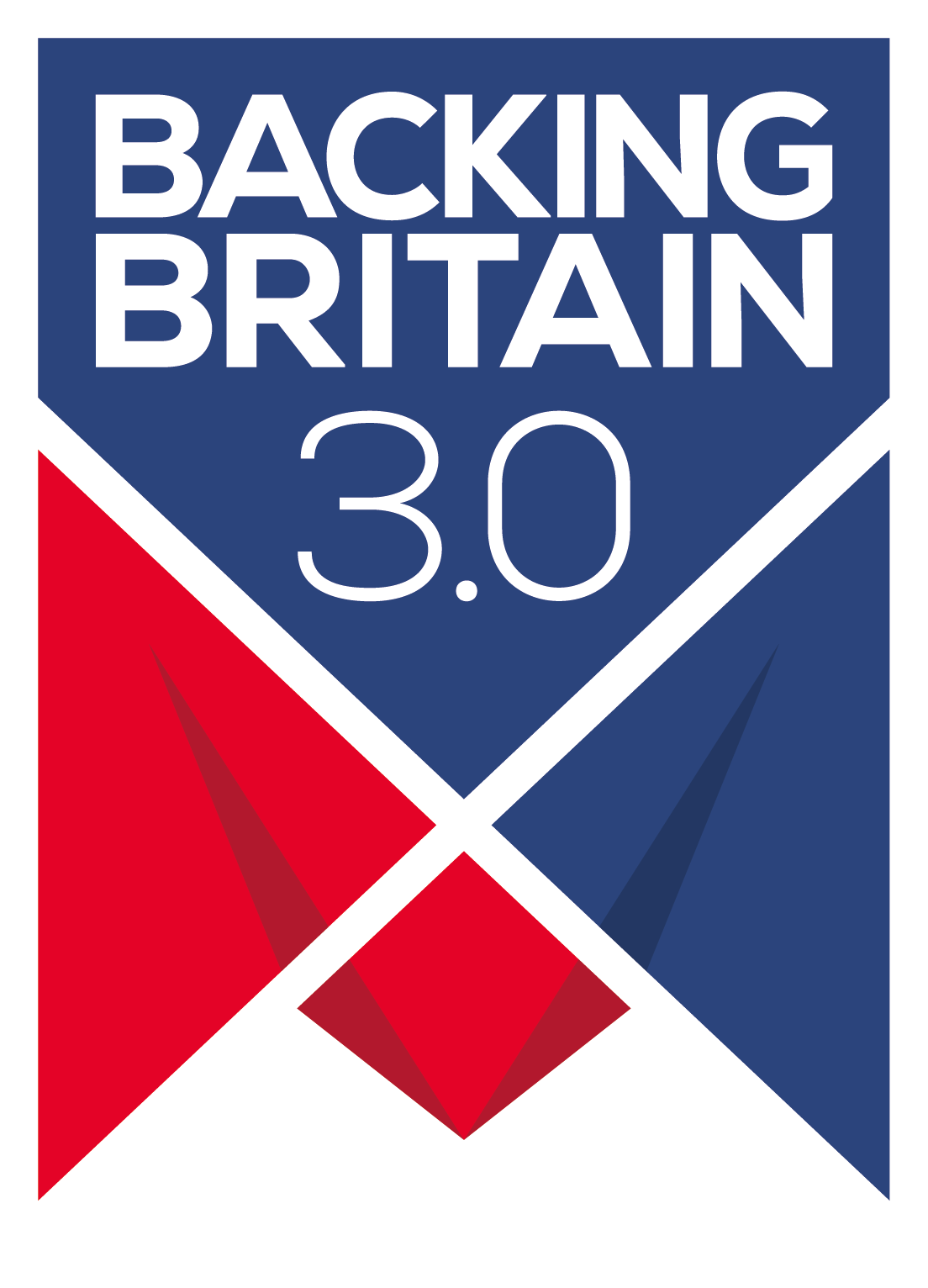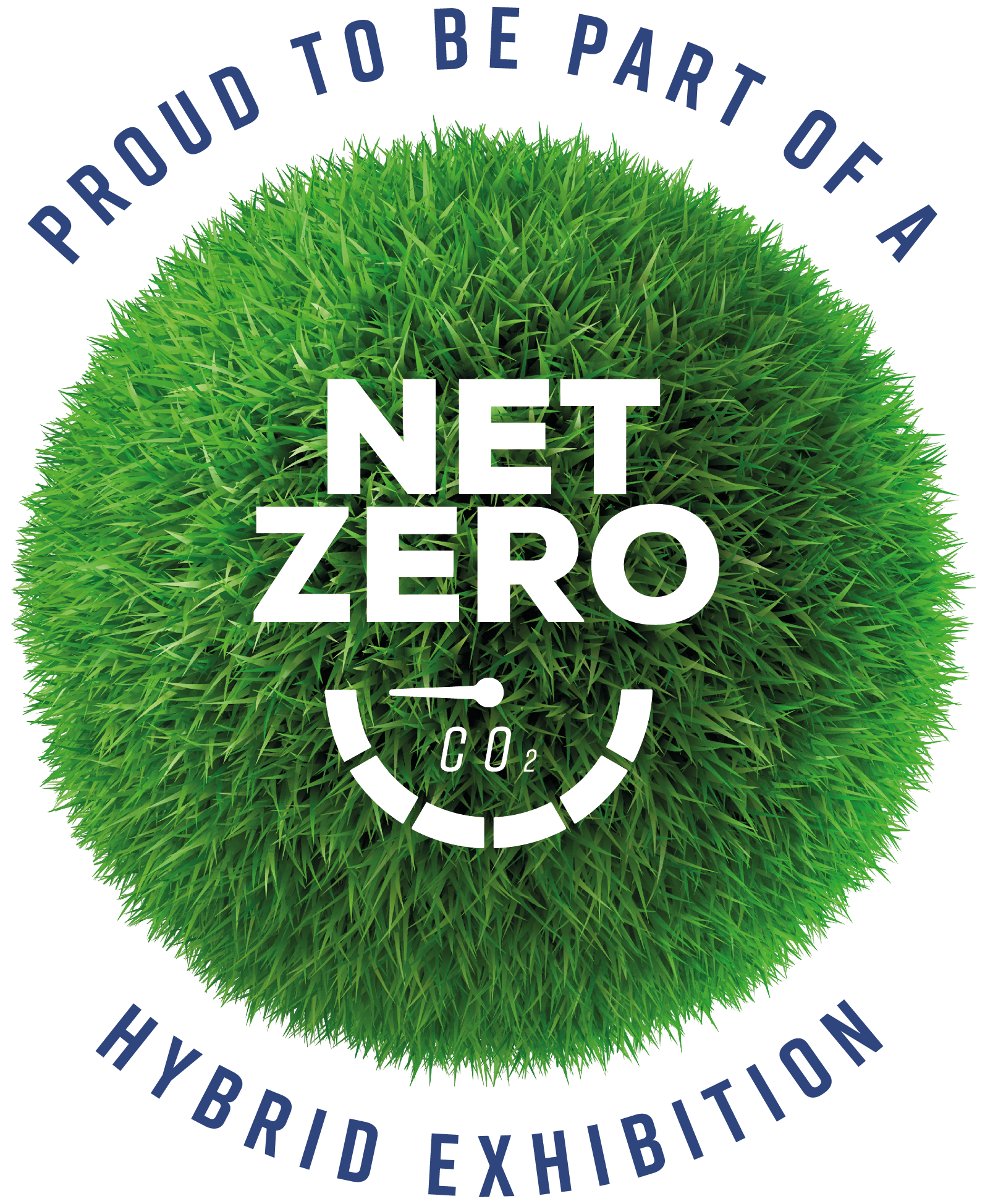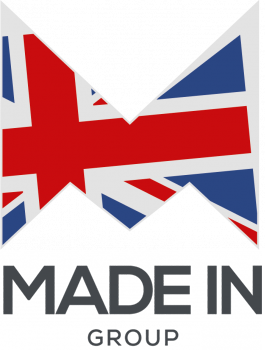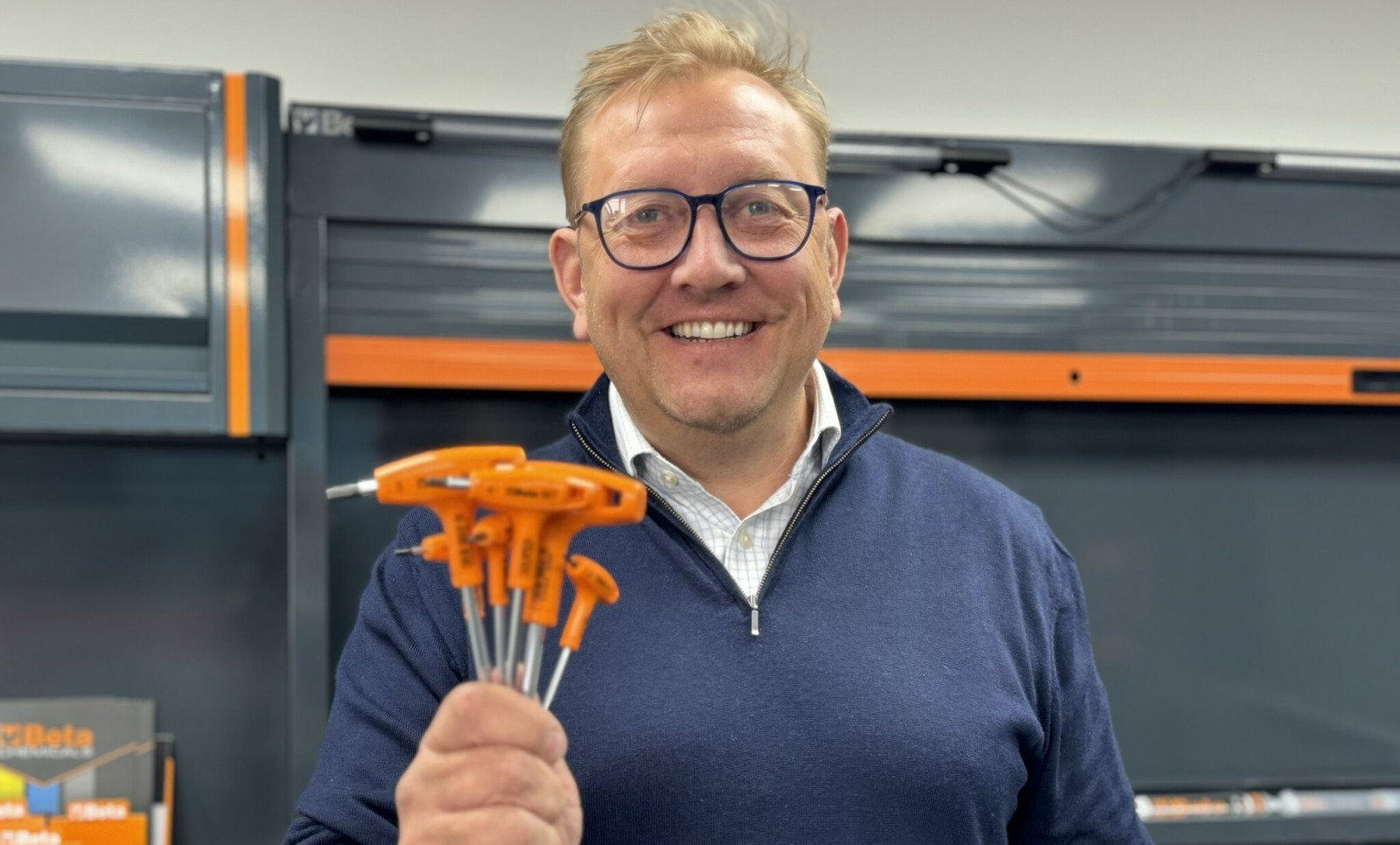
Tools of Legacy: Matt Fletcher on Building Futures, One Apprentice at a Time
By Ilona Pitt, Made in the Midlands
It began with a gift. A boy at the end of his first week of work experience, shoulders hunched with the uncertainty of whether he belonged. Matt Fletcher went down to the workshops and handed him a heavy black case - a socket set, spanners, screwdrivers - bought on impulse, meant to be passed over with little fanfare.
“I was just going to say, ‘There you go, well done,’” recalls Matt Fletcher, Managing Director of Fletcher Moorland, the family-run firm that has kept industry moving for nearly 80 years. But when the boy took it, he didn’t speak. Shock, disbelief, then a swell of gratitude crossed his face, and the room fell quiet.
In that silence, Matt felt something shift. He saw himself at 16, unboxing his first set of tools, feeling for the first time that the future might be his to shape. “I thought, I’ve done something good,” he says.
That small, unscripted exchange became the spark for #GetTooledUp. What began as a single gesture has grown into a monthly giveaway on LinkedIn, drawing hundreds of comments, shares and tags from across the engineering community. Almost 200 engineers have received toolkits worth tens of thousands of pounds. Sponsors and industry leaders have noticed.
But for Matt Fletcher, the heart of it has never been numbers or reach. It began with something far quieter, and infinitely more human: the moment one young engineer believed he was worth investing in.
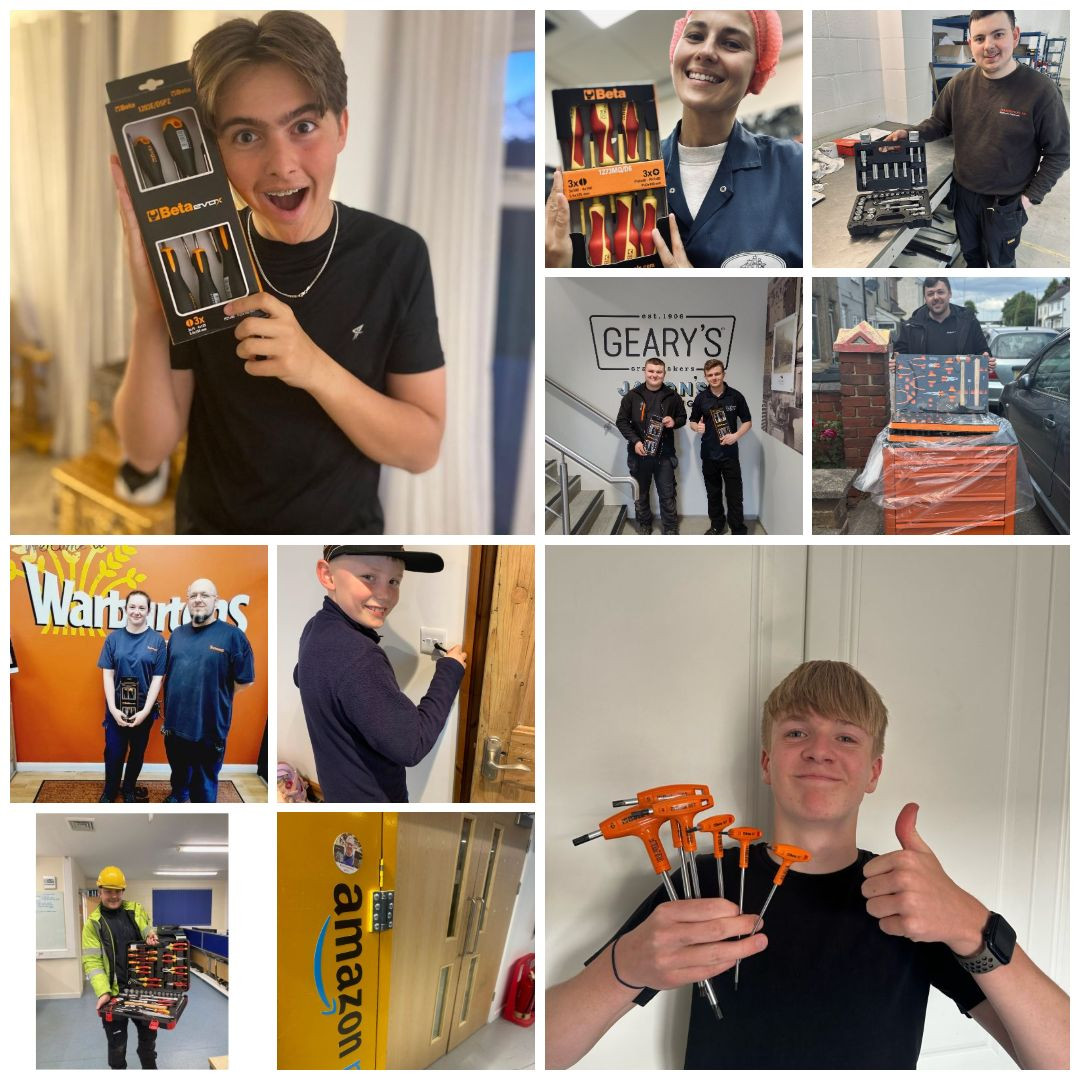
Young engineers proudly receiving their toolkits through the #GetTooledUp initiative.
Ilona Pitt: Take me back to that first moment. You’ve described handing over a toolkit to a 16-year-old on work experience. What did you see in his reaction, and what did it do to you?
Matt Fletcher: I thought I’d just give it to him casually, socket sets, spanners, screwdrivers. But the look on his face… shock, surprise, gratitude. He didn’t know what to say. And then I felt it too, that wave of emotion, like I’d done something good. That’s what sparked #GetTooledUp.
IP: You’ve said that moment took you back to your own first toolkit. What do you remember about receiving yours?
MF: I was 16, borrowing other people’s tools. Then I got my own. It was excitement, the feeling of this is mine, this is for my future. It gave me independence. And I think that’s what I wanted to pass on: the sense that you’re not just borrowing someone else’s world, you’re building your own.
IP: Your connection to engineering goes back even further, to childhood weekends in the factory. What do you remember from those early days at Fletcher Moorland?
MF: Being dragged in by my dad, to be honest. Saturdays in the 1980s, sweeping floors, cleaning out sewage pumps. I remember the smell, the cuts on my hands, and being given the worst jobs. It was tough work, but that’s how you learn.
IP: You mentioned being dragged into the factory as a boy. At what point did you begin to see engineering not as a chore, but as your future?
MF: At school I was in the Army Cadets, and I seriously considered the Royal Engineers or the Royal Electrical Mechanical Engineers. That really appealed to me. But there was also an expectation that I’d join the family business. Fletcher Moorland was already in my blood. When I finished university, I had to choose: the Army or the business. In the end, I went straight into the business.
IP: That decision became very real in 2008, when you carried out the management buyout from your father, right as the global financial crash hit. What was that like?
MF: Trial by fire. One moment I’d bought the business from my father, the next the world was collapsing. It focused the mind tremendously. Suddenly, the responsibility wasn’t just mine, it was for dozens of families. That was the moment I had to grow up.
IP: Every leader has turning points. For you, what were the toughest?
MF: Two stand out. One was when we discovered a management accountant had stolen a great deal of money from the business. It was devastating. The other was Covid. Both times, we had to ask: will we survive this? And both times, the team pulled together. We reminded ourselves that it wasn’t just about wages, half the people here are related to someone else in the company. Entire families depend on us. That focuses you.
IP: And Covid, what did that period teach you about resilience?
MF: Every generation gets its test. My grandfather had the war. My father faced three-day weeks, oil crises, inflation. Covid was mine. We had to adapt overnight, focus on the customers who couldn’t stop: healthcare, pharmaceuticals, critical manufacturing. Times like that can destroy you, or they can reveal opportunities. For us, repairing and refurbishing became more important than ever.
IP: You’ve said Fletcher Moorland has been doing the circular economy for decades, long before it was a buzzword. What do you mean by that?
MF: We’ve been repairing and recycling for 80 years. If a motor fails, most people think about scrapping it. But we take it apart, rewind it, refurbish it, put it back into service. I always say recycling skips a step. Why melt it down when you can bring the whole unit back to life? It saves carbon, saves cost, and keeps industries moving.
IP: That feels especially relevant with today’s supply chain pressures.
MF: Exactly. With Covid, delivery times for new components went through the roof. With rare earth magnets, people were waiting months. So they came to us. Repairing isn’t just good for the planet, it’s good for Britain’s resilience. And it’s satisfying to know that in an industry chasing green targets, we’ve been quietly sustainable all along.
IP: Your philosophy on people seems to mirror that, repair, nurture, give them tools, give them chances. What does developing people mean to you?
MF: Whether it’s cliché or not, I just want people to be the best they can be. We can’t always find the engineers we need in the marketplace, we have to grow them ourselves. Yes, there’s a risk. You invest in people, and they might move on. But that’s life. You don’t raise children expecting them to never leave home. You give them what they need to thrive.
IP: That’s where apprenticeships come in. What does a successful one look like to you?
MF: It’s someone with the desire to learn. They might arrive without skills, but over time they gain them - and with them, confidence. For me, the best apprentices leave here multi-skilled. They can turn their hand to anything. And they’re happy. That’s success.
IP: You’ve turned that same philosophy outward through #GetTooledUp. What’s the bigger vision for it - and for those reading this, how can they get involved?
MF: It started with one toolkit, and now almost 200 young engineers have their own. Each month I post a giveaway on LinkedIn - sometimes a starter set, sometimes a full cabinet. At first I funded it myself, later Beta Tools UK came on board, which helped me scale it up.
But it’s never been about branding or reach. It’s about telling someone at the very start of their journey: you belong here, you’ve got what it takes. And if others want to join in, they don’t need my permission. Buy a toolkit for someone in your workplace. Partner with a supplier. Set up a local version. The point isn’t ownership, it’s impact. One act of encouragement can spark a career.
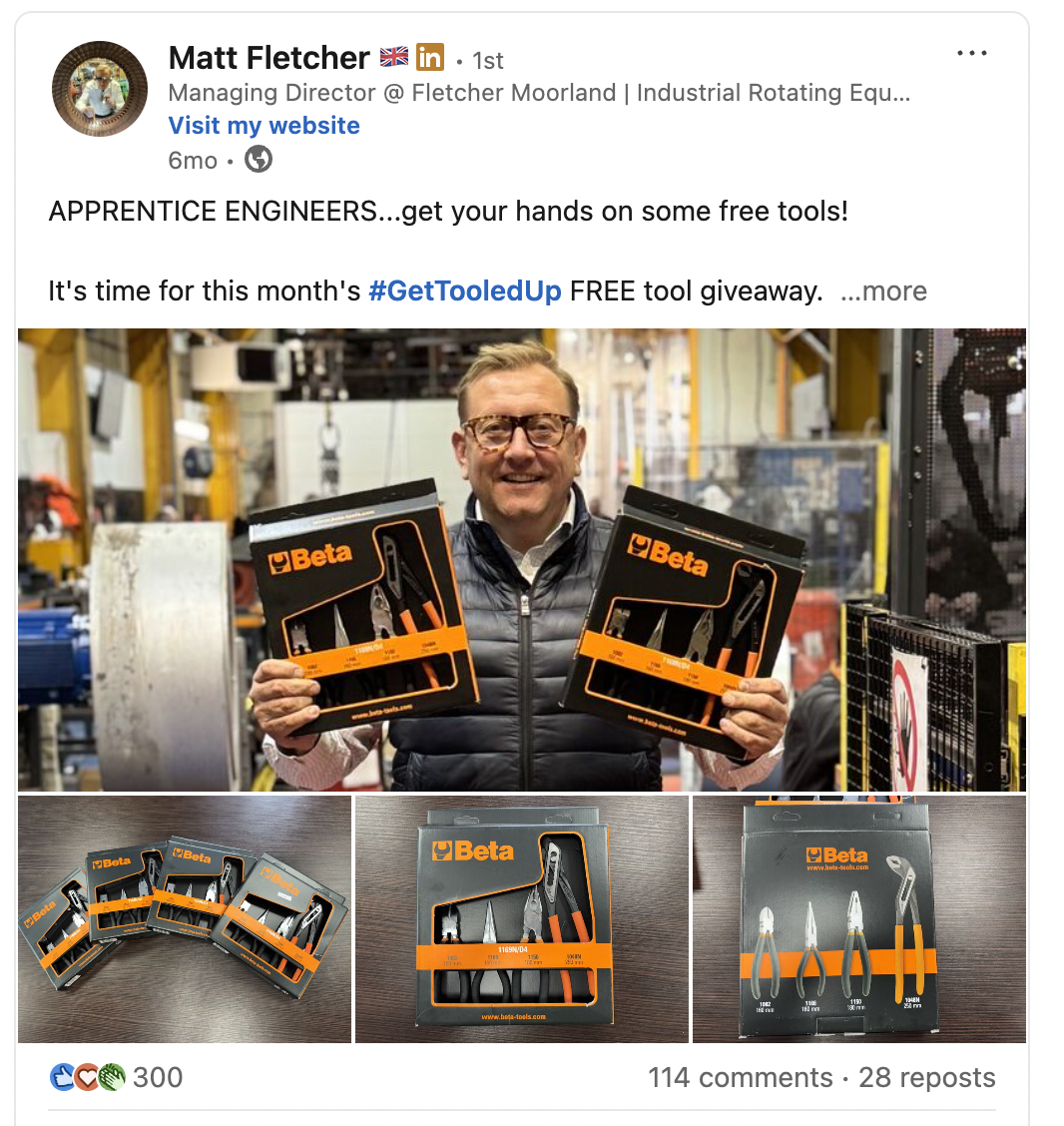
Matt Fletcher promoting the monthly #GetTooledUp tool giveaway on LinkedIn.
IP: You’ve spoken about legacy, not just for Fletcher Moorland but for British engineering. What do you hope people will remember about your contribution?
MF: For me it’s simple: if I’ve helped people, if someone can look back one day and say, “I got something from Matt, whether it was a toolkit, a lesson, or just encouragement,” that’s enough.
IP: You’ve said something powerful to young apprentices: that they’re not starting at the bottom, but at their beginning. Why does that matter?
MF: Because words shape how you see yourself. If you tell someone they’re at the bottom, it devalues what they’re doing. But if you tell them it’s their beginning, it reframes everything. It says: you’ve already started, and there’s only upwards to go. That’s what I want young people to believe.
IP: And #GetTooledUp, do you see it as something bigger than you?
MF: Absolutely. I’ve never seen it as mine to own. I’m not precious about it - I just want good to come from it. If other businesses want to run their own versions, or gift tools and knowledge, I’d welcome it.
If #GetTooledUp can spark that - if it makes others step in, invest in a young person, and say “you belong here” - then it’s already bigger than me. It’s not about tools, really. It’s about belief.
That spirit of giving, of belief, of building futures is exactly why Matt Fletcher has been nominated to the Great100, in the Made Futures category. This category celebrates those shaping the next generation of British industry, the mentors, educators, and champions who ensure skills, knowledge, and confidence are passed on.
Matt’s nomination is not simply recognition of a campaign that has given away almost 200 toolkits. It is about the culture he embodies: a belief that the future of engineering is built tool by tool, apprenticeship by apprenticeship, moment by moment.
In the end, his legacy may not be measured in balance sheets or buildings, but in people, in young engineers who look back one day and say, “I got my start because someone believed in me.”
As Matt Fletcher tells every apprentice: “You’re not starting at the bottom. You’re starting at your beginning.“ A simple line, but one that carries the weight of a legacy.
